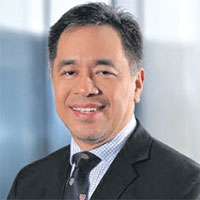April 1, 2025 l Manila Bulletin
In my youth, many of my peers and relatives had the American dream of migrating to the land of milk and honey. Several of them took the chance and found material prosperity practicing their chosen profession, as nurse, accountants, teachers, engineers, and so on. They were able to afford a lifestyle that would not have been possible had they stay put in the country.
Thirty or so years later, many of them are retiring. Retirement represents a major life transition and the idea of returning to the Philippines holds great appeal. The country’s warm climate, lower cost of living, and deep cultural connections make it an attractive retirement destination. With their hefty (by Philippine standards) savings, retirement fund and pension, many are considering the reverse, a Philippine retirement dream.
One of the biggest advantages of retiring in the Philippines is its lower cost of living compared to the U.S. Even in an upscale area like the Bonifacio Global City (BGC), daily expenses such as dining, transportation, and medical care can be significantly cheaper than in major American cities. Outside of Metro Manila, the cost drops even further, allowing retirees to stretch their retirement savings and pensions.
For Filipino retirees who have spent decades abroad, returning to the Philippines offers the comfort of familiar traditions, food, and language. While English is widely spoken, being in a place where Filipino culture is deeply ingrained can provide a sense of belonging that may be missing in foreign countries.
The warm and sunny climate of the Philippines is another draw for retirees, especially those who dislike cold winters. The weather allows for outdoor activities year-round, promoting an active and healthy lifestyle.
And for those who yearn the modernities of urban living and prefer a cosmopolitan lifestyle similar to what they were used to, there are places like BGC, one of the most modern and well-planned urban centers in the country. It boasts world-class shopping malls, fine dining, cultural hubs, parks, and efficient infrastructure. The establishments are also generally senior-friendly.
The BGC option appeals to seniors with mobility challenges. It has wide sidewalks, wheelchair-friendly ramps, and well-maintained roads, making it easier for seniors with mobility issues to get around. Many areas are pedestrian friendly, reducing the need for cars. Seniors who don’t drive can easily use taxis, ride-hailing apps, or the BGC bus for affordable and convenient transportation.
The city has well-planned roads, reliable utilities, and minimal flooding issues. Top hospitals offer world-class healthcare services, which is a major plus for seniors needing regular medical care. The community is known for its low crime rate, with a strong presence of security personnel and well-lit streets. Parks offer relaxing outdoor spaces, for socializing, or light exercises.
In the Philippines, it is common to have household help, which is more affordable than in Western countries. Retirees who need assistance with daily tasks, cooking, or home maintenance can hire help at reasonable rates, making life more comfortable.
Of course, it is not all wine and roses taking the plunge. While the Philippines is generally affordable, BGC is among the most expensive places in the country. Rent, groceries, and dining out in this area can be costly. Retirees on a tight budget may need to consider alternative locations.
Although BGC itself is pedestrian-friendly, venturing outside can be challenging due to Metro Manila’s notorious traffic congestion. Public transportation is not as efficient as in Western cities, making travel within the metro difficult without a private vehicle or ride-hailing services.
While Metro Manila has excellent healthcare facilities, retirees considering moving to the provinces must be aware that medical services can be less accessible. Some areas may lack specialists and advanced medical equipment, requiring travel to Manila for treatment.
The tropical climate, while pleasant, also comes with typhoons and occasional flooding. Although BGC is well-developed and relatively flood-free, other parts of the country may be prone to natural disasters.
Government transactions, such as visa renewals and processing retirement benefits, can be slow and inefficient. Retirees may need patience and persistence when dealing with bureaucratic procedures.
Retiring in the Philippines, particularly in Bonifacio Global City, presents both opportunities and challenges. The country’s lower cost of living, warm climate, and cultural familiarity make it a compelling option for Filipino retirees from the U.S. However, considerations such as healthcare, bureaucracy, and location must be carefully planned.
The serious returnee must prepare financially, assess retirement funds, social security, pensions, and potential passive income sources. One must understand the healthcare system, have a backup plan for medical evacuation or travel in case of serious health issues. The legal and residency requirements must be in order. Finally, an emergency fund to cover unforeseen expenses is a must.
Browsing through social media and YouTube, one can find posts of both expats and Filipinos with their thoughts on how to make the Philippines a dream retirement destination. By choosing a suitable place to live, retirees can enjoy a fulfilling and comfortable life in the Philippines. Whether settling in the bustling BGC or a quieter provincial town, returning home can be a rewarding experience when approached with careful planning.
***The views expressed herein are his own and do not necessarily reflect the opinion of his office as well as FINEX. For comments, email benel_dba@yahoo.com. Photo is from Pinterest.

